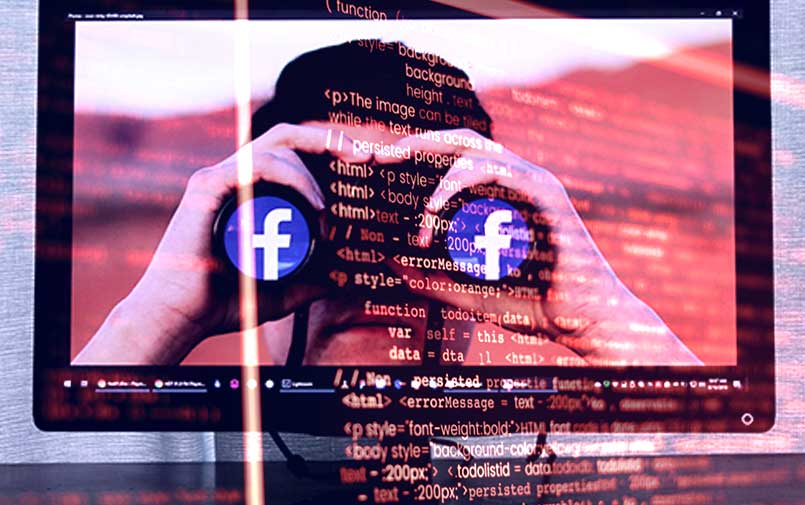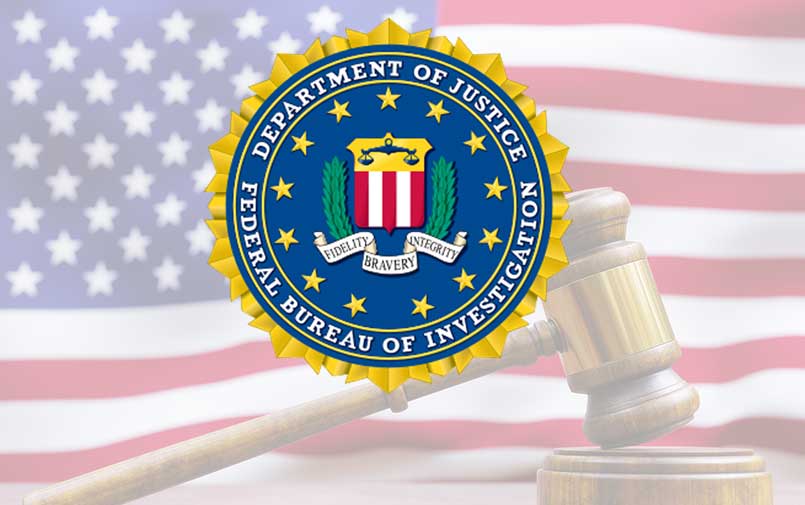BREAKING NEWS
Users Say “Doh sveedahneeyah” to Their Instagram Accounts

Users Say “Doh sveedahneeyah” to Their Instagram Accounts. It seems that Facebook and election machines aren’t the only things the Russians are busy with.
They’re also busy sowing chaos on Instagram as well resulting in thousands of users being forced to say goodbye to their Instagram accounts and their hundreds of respective followers. For some unknown reason, these Instagram accounts are being hijacked by Russian hackers rendering them inaccessible.
This problem has apparently been going on for weeks.
Because regaining access to accounts is largely automatic, albeit a torturous one, the issue has gone unreported for some time. That is until it trended on Twitter where Instagram users have voiced their frustrations. Instagram mainly sends automatic messages to users on how to regain access to their accounts as well as some tips to help the users secure their accounts.
Though Instagram, which has more than 1 billion users, says it hasn’t seen an uptick in hacks, a search of Twitter data suggests otherwise. Twitters users have directed approximately 798 tweets to Instagram’s official account with the word ‘hack’ since the beginning of the month, compared with about 40 tweets during the same period in July… There are numerous reports of hacks on Reddit, and a Google Trends search shows a spike in searches for “Instagram hacked” on Aug. 8, and again on Aug. 11.
–Mashable
We are aware that some people are having difficulty accessing their Instagram accounts. If you think you have been impacted, please follow our guidance to regain access: https://t.co/DfHpQuk9SJ
— Instagram (@instagram) August 15, 2018
–Instagram, Twitter
Thousands of users report that they suddenly found themselves unable to access their accounts. When they try to access, they find that their registered emails have been changed to something with a .ru domain. Users profile pictures have also been replaced with stills from popular Disney/Pixar films as well as their phone numbers and short bios. The .ru domain mostly points to Russian involvement though given the benefit of a doubt, people can easily register to a Russian email service.
What’s common about the hack is that the accounts involved may not have had enough security, weak passwords and the lack of two-factor authentication. But two-factor authentication is also not a guarantee that accounts will not be hacked as there were victims that also use the security feature which is quite unnerving, as the feature though tedious, guarantees a high level of security.
Users have been voicing their frustrations over Twitter and other social media avenues on how Instagram has failed to support them. Frustrated users have threatened to say “doh sveedahneeyah” to the platform, while many are anxious to leave as Instagram has become their social media avenue in terms of additional exposure for business. Many of these accounts have hundreds if not thousands of followers these users depend on. Some have put up replacement accounts until Instagram gets their act together.
Security experts speculate that the hacked accounts not recovered will be used as spam bots and that the contents will become a measure of proof that they’re valid. Users mostly see the hacks as a danger to their privacy; or in terms of social media, selective exposure. By now, the best option for Instagram users is to immediately switch to a new, more secure password, enable two-factor authentication and to post pre-emptive warnings and maybe even set up a backup account.
BREAKING NEWS
UK Fines Facebook over Cambridge Analytica Scandal
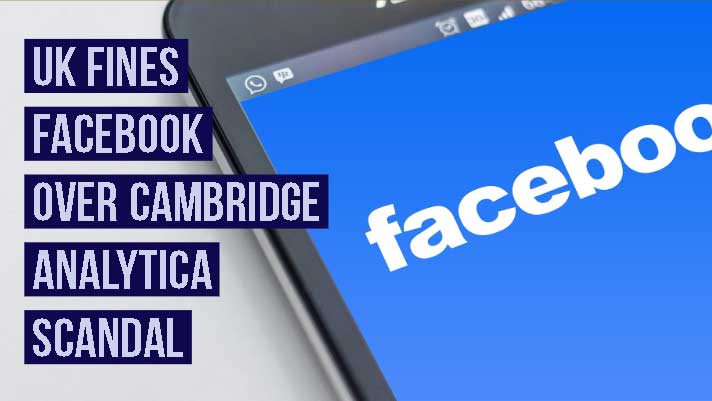
UK Fines Facebook over Cambridge Analytica Scandal. The UK has hit Facebook a fine of $645,000 for the Cambridge Analytica Scandal. It was revealed earlier this year that they had harvested the personal data of millions of profiles without the user’s consent and used it for political purposes. It is estimated that 87 million users were affected.
The fine has been enforced by the UK’s Information Commissioner’s Office (ICO) and was calculated using a pre-GDPR formula for data breach fines. Using the UK’s old Data Protection Act to fine Facebook, rather than GDPR they can only give a maximum penalty of £500,000, which is equal to what the social media giant earns every 18 minutes.
GDPR rules dictate a maximum fine of 4% of annual global turnover, which would be $1.6 billion. Unfortunately the the GDPR regulation wasn’t in place when the Cambridge Analytica story broke, coming into force in May 2018.
The UK investigation concluded that Facebook’s APIs had been allowing developers access to users information without them providing proper consent, for a long period of time between 2007 and 2014. Once they realized this loophole existed and patched it up, they did nothing to investigate the data compromised or ensure it was deleted.
[FACEBOOK] should have known better and it should have done better… We considered these contraventions to be so serious we imposed the maximum penalty under the previous legislation. The fine would inevitably have been significantly higher under the GDPR
Information Commissioner Elizabeth Denham said in a statement
Facebook has said they are reviewing the ICO’s findings and stated they “respectfully disagree” with some of the report, but admit they should have done more to protect users data. They also added that they found no evidence that British users profile information was shared with Cambridge Analytica.
BREAKING NEWS
Libssh Security Flaw leaves thousands of servers vulnerable to hijacking
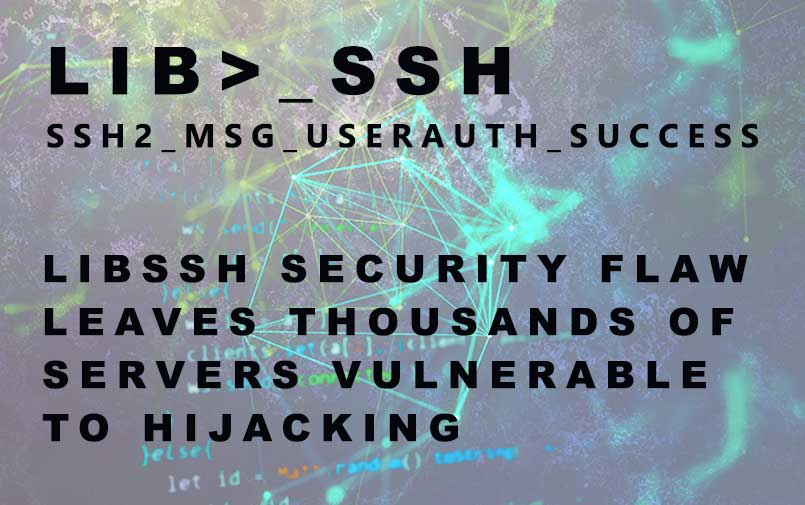
Libssh Security Flaw leaves thousands of servers vulnerable to hijacking. A security flaw in libssh leaves thousands, and potentially more, servers vulnerable to an attack. Libssh is a multiplatform C library which allows users to remotely execute programs, transfer files, manage public keys and use a secure and transparent tunnel.
The security flaw, discovered by Peter Winter-Smith from NCC Group, allows a hacker to bypass the authentication process on the servers and gain access to the system without having to enter a password.
An attacker can do this by sending the SSH server “SSH2_MSG_USERAUTH_SUCCESS” message instead of the “SSH2_MSG_USERAUTH_REQUEST” message that a server usually expects and which libssh uses as a sign that an authentication procedure needs to initiate.
The libssh system will treat this message to mean the authentication has already taken place and allow the attacker access to the server. The flaw (CVE-2018-10933) was released in January 2014 in release 0.6.0.
It’s estimated that the vulnerability currently affects at least 3000 servers, however this is based on a small search and the scale of the problem is not yet known. There were concerns that the popular version control site for developers to work collaboratively on projects, GitHub, was affected but they have released a statement denying this. Github claims the way they use libssh means they are not vulnerable to this exploit.
“We use a custom version of libssh; SSH2_MSG_USERAUTH_SUCCESS with the libssh server is not relied upon for pubkey-based auth, which is what we use the library for,”
a GitHub security official said on twitter
While we use libssh, we can confirm that https://t.co/0iKPk21RVu and GitHub Enterprise are unaffected by CVE-2018-10933 due to how we use the library.
— GitHub Security (@GitHubSecurity) October 16, 2018
The security flaw is only on the server side, meaning users who have a libssh based SSH client installed on their computer will be safe from potential attackers looking to exploit this vulnerability.
While there are currently no public exploits available for the vulnerability, they are easy to put together so these are likely to pop up online in the coming days and weeks.
The team at libssh released versions 0.8.4 and 0.7.6 yesterday to handle this bug.
BREAKING NEWS
Ad Clicker Disguised as a Google Photos App has been Hosted on Microsoft Store.
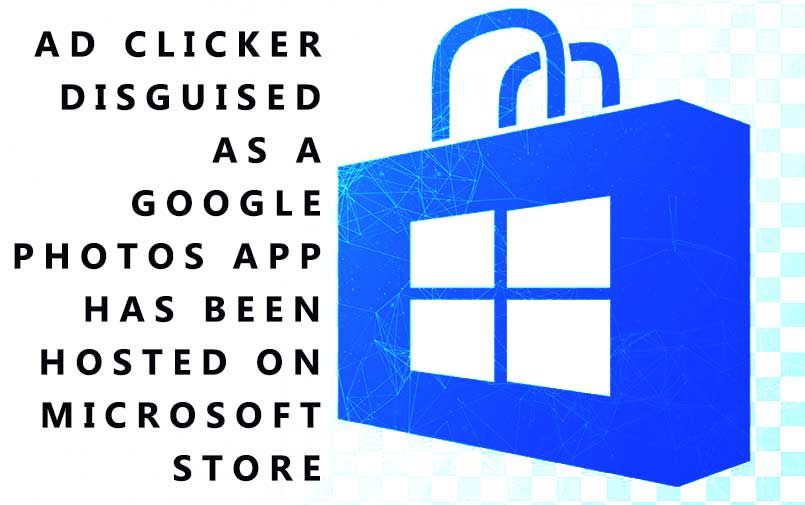
Ad Clicker Disguised as a Google Photos App has been Hosted on Microsoft Store.
A malicious app called “Album by Google Photos” was found to be hosted on the Microsoft store. The app was pretending to be part of Google Photos, but was in fact an ad clicker that generates hidden adverts within the Windows 10 Operating System.
The ad clicker app seemed credible to users because of its name, and also the fact it claimed to be created by Google LLC, Google’s actual Microsoft store account is Google Inc, but it looks unsuspecting to users. Microsoft came under some criticism for not realising the app was actually malicious software since the user reviews did highlight that the app was fake, with plenty of 1* reviews. One review states “ My paid Anti-malware solution detected several attempts to download malware by this app. Watch out”. The App was first released on the Microsoft store in May.
What did the application do?
The “Album by Google Photos” app is a Progressive Web Application (PWA), which acts as the front end for Google Photos and includes a legitimate login screen. Hidden in the app bundle is also an ad clicker which runs in the background and generates income for the app developers.
The app connects to ad URLS, and the ads were very similar to what users would see from typical adware, including tech support scams, random chrome extensions, fake flash and java installs and general low-quality sites.
Microsoft haven’t commented how this app managed to pass the Microsoft review process before ending up on the store. This is somewhat concerning since it could mean other malicious apps of a similar nature have flown under the radar and are still infecting user’s computers. We are waiting for Microsoft to comment on the issue.
-

 GAME REVIEW7 years ago
GAME REVIEW7 years agoTop Hacking Simulator Games Every Aspiring Hacker Should Play: Part 1
-

 DEALS7 years ago
DEALS7 years agoGreat Ethical Hacking Courses for Beginners
-

 HACKING NEWS7 years ago
HACKING NEWS7 years agoThe APT attacks hitting East Asia
-
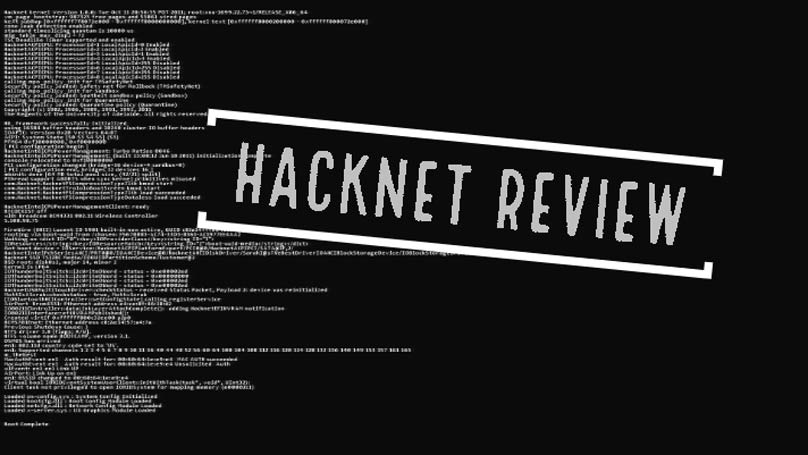
 GAME REVIEW7 years ago
GAME REVIEW7 years agoHacknet Review
-

 BREAKING NEWS7 years ago
BREAKING NEWS7 years agoUK Fines Facebook over Cambridge Analytica Scandal
-

 BREAKING NEWS7 years ago
BREAKING NEWS7 years agoUS Online Retail Company suffered a data breach affecting 6.5 million customers
-

 HOW TO7 years ago
HOW TO7 years agoHow To Become an Ethical Hacker – Beginners Guide
-

 DEALS7 years ago
DEALS7 years agoMusic, Voice and Sound interface kits: What you need to know

